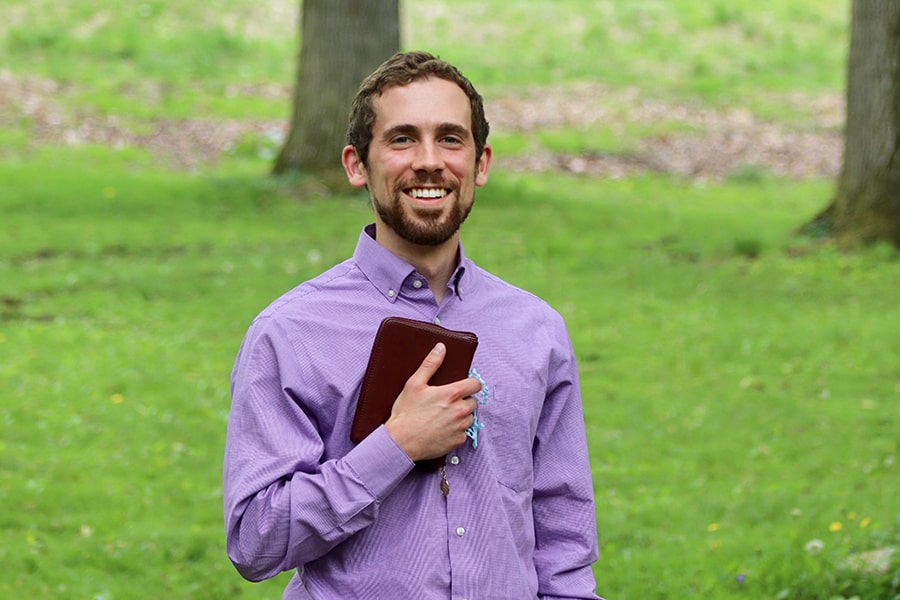
Legacy of American Sign Language
By Heidi Opdyke
Erik Pintar taught his friends a bit of American Sign Language over a meal at Carnegie Mellon University's Resnik House.
A first-year student in computer science at the time, Pintar guided the table through signing the theme song from the show "Pokémon." Intrigued by the short lesson, they encouraged Pintar to teach a course.
"I had a lot of fun sharing that experience," said Pintar, who was born with profound hearing loss. "I grew up learning sign language before I could remember. I was sort of ashamed of sign language growing up because it made me different. It was at Carnegie Mellon when I realized it was a neat thing that I knew."
He went on to create a Student College (StuCo) course called "Sign Language Through Pop Music." First taught in the spring of 2014, Pintar and others have offered the course every semester since. He embraced signing in college in other ways, too. While attending church, he started feeling compelled to sign along with worship music.
Pintar focused on pop songs as the basis of teaching sign language to make the lessons fun. Over the years, students have signed to songs like "Castle on the Hill" by Ed Sheeran, "I'm Gonna Be (500 Miles)" by the Proclaimers and "Happy" by Pharrell Williams.
"I think the first thing is helping the students understand that American Sign Language is its own language in its own right. A lot of people have the conception that it's a signed version of English. I help them understand that it has its own grammar and structure — that can be a hard concept," he said. "Some people catch on really naturally to the hand shapes. Others need a little more coordination and practice."
Pintar taught the StuCo course five times prior to graduating in 2016 with a bachelor's degree in electrical and computer engineering and an additional major in human-computer interaction.
"I think the biggest thing for me to have students take away from the course was sharing the beauty of sign language itself and spreading the joy of signing and the joy of experiencing a visual language instead of a spoken language," he said. "Secondly, to have students understand more of the experience of someone with hearing loss or who is deaf and experiencing that empathy."
As a software engineer in Google's Pittsburgh office, he offered the course twice to colleagues and interns as well as a seminar about understanding different disabilities in the workplace.
"I grew up learning sign language before I could remember. I was sort of ashamed of sign language growing up because it made me different. It was at Carnegie Mellon when I realized it was a neat thing that I knew."
In 2019, Pintar left Google and to join a seminary to become a parish priest.
At CMU, former students carry on Pintar's legacy, often using the trove of video assets he created along with adding new material. Every semester he reaches out to see if anyone needs assistance with final projects and translating songs. Past instructors have included Alayna Tillman, a senior in business administration and English; Julia Kang, a senior in psychology; and Katherine Forrester, who graduated in 2019 with degrees in chemical and biomedical engineering.
This fall, Sydney Dunn, a junior in electrical and computer engineering, and Summer Abraham, a junior in psychology and social and decision sciences, are leading the course. Each served as teaching assistants in previous semesters and took the class as well.
The course includes sections on deaf culture and continues to use much of Pintar's syllabus.
"We're not members of the hard of hearing community, but we and previous instructors have always said that if someone is deaf or hard of hearing and was interested in teaching it, we would step back," Abraham said.
Pintar said he is happy that the course has continued.
"I hope people can apply what they are learning," he said. "Especially if they have any relative who has any hearing loss or is deaf, or even meeting someone in the grocery store, it really makes someone's day when they find someone else who knows sign language. I'm always happy when someone can sign."